New president has a broken nation to repair
by Richard Chelin,
2016-03-14 05:54:27.0
AFTER almost three years of conflict in the Central African Republic (CAR), former prime minister Faustin-Archange Touadéra won 63% of the votes in last month’s presidential elections, defeating rival Anicet-Georges Dologuélé.
After the constitutional court validated the results on March 1, Touadera became the country’s new president. Several challenges await him, most importantly whether elections will help restore stability in the CAR.
Greek philosopher Plato once described democracy as the most aggravated form of tyranny that provides the perfect foundation for dictatorship. African leaders who refuse to leave office and extend their mandates by whatever means possible appear to validate Plato’s cynical view of democracy.
For these leaders, democracy becomes a means to consolidate power. Under its mantle, they exploit loopholes in the legal system, hold dubious referendums and resort to intimidation and violent tactics to coerce the electorate into voting for them.
They reduce democracy to a mere nomenclature that contributes little of value towards a positive change in their societies.
The conflict in the CAR can be traced back to 2013, when Muslim Seleka rebels deposed president François Bozizé and installed Michel Djotodia as the new leader.
After seizing power in the mainly Christian country, the Séléka rebels began perpetrating human rights violations against the population. This prompted retaliation from Christian militias known as the anti-balaka.
What began as a political crisis soon escalated into a conflict with sectarian and religious overtones as the anti-balaka launched attacks against Muslim civilians.
Thousands of people died and nearly 1-million CAR citizens fled to neighbouring countries.
With increasing pressure from the global community, Djotodia stepped down and former Bangui mayor Catherine Samba-Panza was chosen as interim president for a transitional government established in January 2014.
During her period in office, Samba-Panza attempted to restore stability and peace to pave the way for elections, which were postponed at least four times.
On December 13, amid heavy security provided by international peacekeepers, 93% of citizens voted in favour of a new constitution.
On December 30, the country went to the polls to vote in the first round of the presidential elections.
The results provided three frontrunners — Dologuélé, who obtained 23.74% of the votes, Touadéra with 19.05%, and Désiré Kolingba with 12.04%.
In a reversal of fortune, Touadéra won nearly two-thirds of the votes in the second round, defeating the leader of the first round, and becoming president.
Although elections may be the first step in restoring stability after a conflict, many issues still need to be attended to.
The main task will be to end the violence that has engulfed the country for the past two years. This will entail a demobilisation, disarmament and re-integration programme aimed at Séléka and anti-balaka militia fighters.
To ensure a peaceful transition to a democratic state, there is a need for reform that targets the state security forces, justice and law enforcement institutions, and civil society organisations.
The CAR’s new president has to elect a government that is representative of the demographics of the country. Opposition politicians and the Muslim minority have to be included in the cabinet.
One way for Touadéra to demonstrate a will to foster unity is to appoint his opponent, Dologuélé, prime minister. But the fact both men are Christian has been raised as a concern. Touadéra faces the mammoth task of rebuilding the economy. Prior to the conflict, the CAR’s economy was already in decline — gross domestic product slumped from $2.17bn in 2012 to an estimated $1.62bn in 2015.
In addition to securing aid from the International Monetary Fund and the World Bank to rebuild its economy, the CAR’s new government will need to revive the cotton, mining and agricultural sectors to receive tax revenue.
The return and integration of refugees and internally displaced people is an essential aspect of reconstruction and reconciliation.
Despite its negative connotation in parts of Africa, democracy still remains the most viable system for restoring stability and economic growth on the continent.
As Aristotle remarked: "If liberty and equality, as is thought by some, are chiefly to be found in democracy, they will be best attained when all persons alike share in the government to the utmost".
The task of rebuilding the CAR rests not only on its government, it is also the responsibility of each of its citizens.
• Chelin is as an independent conflict analyst
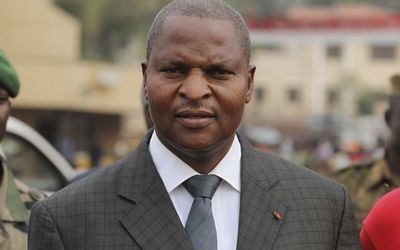
Central African Republic's President Faustin-Archange Touadéra. Picture:
Photograph by: Central African Republic's President Faustin-Archange Touadéra. Picture: REUTERS/LUC GNAGO
AFTER almost three years of conflict in the Central African Republic (CAR), former prime minister Faustin-Archange Touadéra won 63% of the votes in last month’s presidential elections, defeating rival Anicet-Georges Dologuélé.
After the constitutional court validated the results on March 1, Touadera became the country’s new president. Several challenges await him, most importantly whether elections will help restore stability in the CAR.
Greek philosopher Plato once described democracy as the most aggravated form of tyranny that provides the perfect foundation for dictatorship. African leaders who refuse to leave office and extend their mandates by whatever means possible appear to validate Plato’s cynical view of democracy.
For these leaders, democracy becomes a means to consolidate power. Under its mantle, they exploit loopholes in the legal system, hold dubious referendums and resort to intimidation and violent tactics to coerce the electorate into voting for them.
They reduce democracy to a mere nomenclature that contributes little of value towards a positive change in their societies.
The conflict in the CAR can be traced back to 2013, when Muslim Seleka rebels deposed president François Bozizé and installed Michel Djotodia as the new leader.
After seizing power in the mainly Christian country, the Séléka rebels began perpetrating human rights violations against the population. This prompted retaliation from Christian militias known as the anti-balaka.
What began as a political crisis soon escalated into a conflict with sectarian and religious overtones as the anti-balaka launched attacks against Muslim civilians.
Thousands of people died and nearly 1-million CAR citizens fled to neighbouring countries.
With increasing pressure from the global community, Djotodia stepped down and former Bangui mayor Catherine Samba-Panza was chosen as interim president for a transitional government established in January 2014.
During her period in office, Samba-Panza attempted to restore stability and peace to pave the way for elections, which were postponed at least four times.
On December 13, amid heavy security provided by international peacekeepers, 93% of citizens voted in favour of a new constitution.
On December 30, the country went to the polls to vote in the first round of the presidential elections.
The results provided three frontrunners — Dologuélé, who obtained 23.74% of the votes, Touadéra with 19.05%, and Désiré Kolingba with 12.04%.
In a reversal of fortune, Touadéra won nearly two-thirds of the votes in the second round, defeating the leader of the first round, and becoming president.
Although elections may be the first step in restoring stability after a conflict, many issues still need to be attended to.
The main task will be to end the violence that has engulfed the country for the past two years. This will entail a demobilisation, disarmament and re-integration programme aimed at Séléka and anti-balaka militia fighters.
To ensure a peaceful transition to a democratic state, there is a need for reform that targets the state security forces, justice and law enforcement institutions, and civil society organisations.
The CAR’s new president has to elect a government that is representative of the demographics of the country. Opposition politicians and the Muslim minority have to be included in the cabinet.
One way for Touadéra to demonstrate a will to foster unity is to appoint his opponent, Dologuélé, prime minister. But the fact both men are Christian has been raised as a concern. Touadéra faces the mammoth task of rebuilding the economy. Prior to the conflict, the CAR’s economy was already in decline — gross domestic product slumped from $2.17bn in 2012 to an estimated $1.62bn in 2015.
In addition to securing aid from the International Monetary Fund and the World Bank to rebuild its economy, the CAR’s new government will need to revive the cotton, mining and agricultural sectors to receive tax revenue.
The return and integration of refugees and internally displaced people is an essential aspect of reconstruction and reconciliation.
Despite its negative connotation in parts of Africa, democracy still remains the most viable system for restoring stability and economic growth on the continent.
As Aristotle remarked: "If liberty and equality, as is thought by some, are chiefly to be found in democracy, they will be best attained when all persons alike share in the government to the utmost".
The task of rebuilding the CAR rests not only on its government, it is also the responsibility of each of its citizens.
• Chelin is as an independent conflict analyst


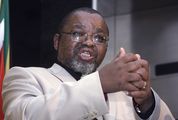
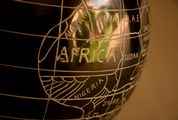

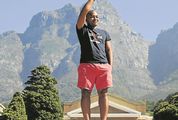



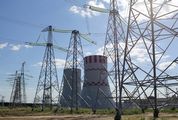














Change: 0.83%
Change: 0.93%
Change: 0.95%
Change: 0.73%
Change: 1.91%
Data supplied by Profile Data
Change: 0.58%
Change: 0.43%
Change: 0.83%
Change: 0.00%
Change: 0.56%
Data supplied by Profile Data
Change: -1.67%
Change: -0.90%
Change: -0.65%
Change: -1.21%
Change: -0.47%
Data supplied by Profile Data
Change: 2.49%
Change: 2.09%
Change: 2.30%
Change: 2.29%
Change: 3.39%
Data supplied by Profile Data